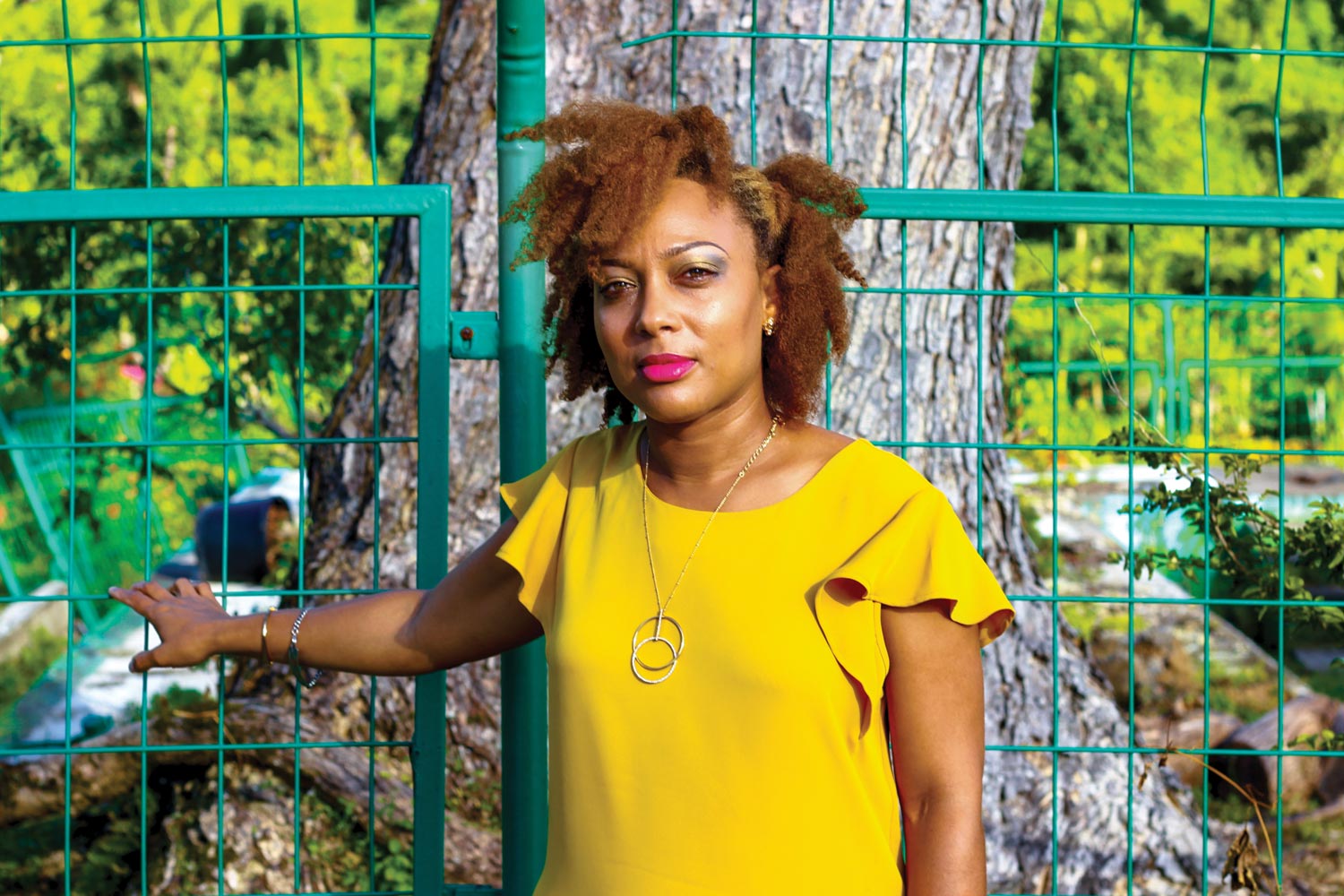Schuyler Esprit’s Create Caribbean project in Dominica
Digital humanities are a blossoming field in the Caribbean. In projects like Anthurium, an open-access online Caribbean studies journal, and sx archipelagos, a publishing, review, and scholarship project of the print journal Small Axe, scholars have been steadily increasing their use of technology in the study and dissemination of literature, art, history, and other areas in the humanities.
In Dominica, for example, Create Caribbean has been doing its part to use tech to further goals in teaching and cultural preservation. Dr Schuyler Esprit founded the NGO at Dominica State College, and since 2014 it has been a part of the educational landscape in her home island and the wider region.
Esprit, who holds a PhD in English literature from a US university, baffled her family and friends when she walked away from her promising teaching career in Washington, DC, to return to her homeland after thirteen years away. But the work she’s managed to do in the intervening years has converted them — as well as ordinary Dominicans, and the government, too.
Create Caribbean’s projects include developing apps, games, and technological solutions to share research and educational work. Take, for example, the multimedia Dominica History web project. It targets users who are in primary and secondary school, telling stories of Dominica’s heritage with colourful digital artwork and tools like an interactive timeline. There’s also Create and Code, a camp to teach children between ages seven and sixteen how to write code, do digital research, and use the Internet responsibly. Another project is Carisealand, a collaboration with Grenada-based writer Oonya Kempadoo, which seeks to bring together research on the Caribbean environment and preservation.
Create Caribbean also provides research support to the public (for a fee), and to Dominica State College students, faculty, and staff (for free), plus grant-writing, documentation, copywriting, web development, and design as part of the services it offers to the public. And all this work is done with interns, who are active, highly visible team members.
Esprit teaches digital humanities research at Dominica State College, where Create Caribbean is housed, and where she is also registrar and dean of academic affairs. She says Create Caribbean has also been drawing community support, particularly from her alma mater, Convent High School.
Then September 2017 brought an immense setback, as Hurricane Maria struck Dominica, damaging or destroying ninety-five per cent of the island’s buildings, including the Create Caribbean office. It also destroyed equipment Esprit had paid for out of her own pocket — the organisation is largely self-funded. Create Caribbean suffered US$30,000 in damage, all told.
“When Maria happened and our building got severely damaged,” Esprit recalls, “Convent High School opened their doors to me and the Create team, and allowed me to spend time with the students, getting [us] back on our feet psychologically and emotionally, and to motivate us to get back to our work as part of the recovery and rebuilding process. We used space at the school for about six consecutive weeks after the storm for our basic operations, and we continue to use their space for our programming and showcasing of our projects.”
Students feel the love, Esprit explains. “The relationship between Create Caribbean and that school is so strong that one of my current research interns began her journey to the programme by meeting me in the hallway during her very first week of school at Dominica State College, and asking to become part of what we do. I asked her what she knew about us. Although she was not sure exactly what digital humanities was or how we tackle research, she was excited by her experience of seeing the work presented when she was a student in our audience at high school. She was especially fascinated by the way the student interns had full control of their content, design, research process, and the presentation. She felt empowered that she could be on that stage presenting a project one day.” The result? “She now does much of our animation work at Create Caribbean.”
Esprit’s family and friends are over the shock, and fully supportive of her mission now. “Once I knew what Create Caribbean was, what it would look like and how it would work, they were right on board. Both my parents were actively involved. My father built furniture and volunteered as tour guide on our history/nature hikes, my mother cooked for our Create and Code camps, my aunts with whom I was raised spent a lot of money ensuring that I had many of the material resources I needed to make this work, including hosting a group of seven at their home in New York City for our college tour and culture exchange trip in 2016. My siblings are moral support of the best kind, and my sisters have provided material and emotional support as I go through the growing pains.”
She adds, “At no time has anyone in my family questioned my desire to study literature, my desire to work for a cause like cultural preservation, that is so important and passionate to me, or my choice to live and work in the Caribbean, even when they were worried and afraid. And I am immensely grateful for a family that has proven it’s possible to break the Caribbean stereotype by which parents measure their children’s success — doctor, lawyer, businessman.”


















